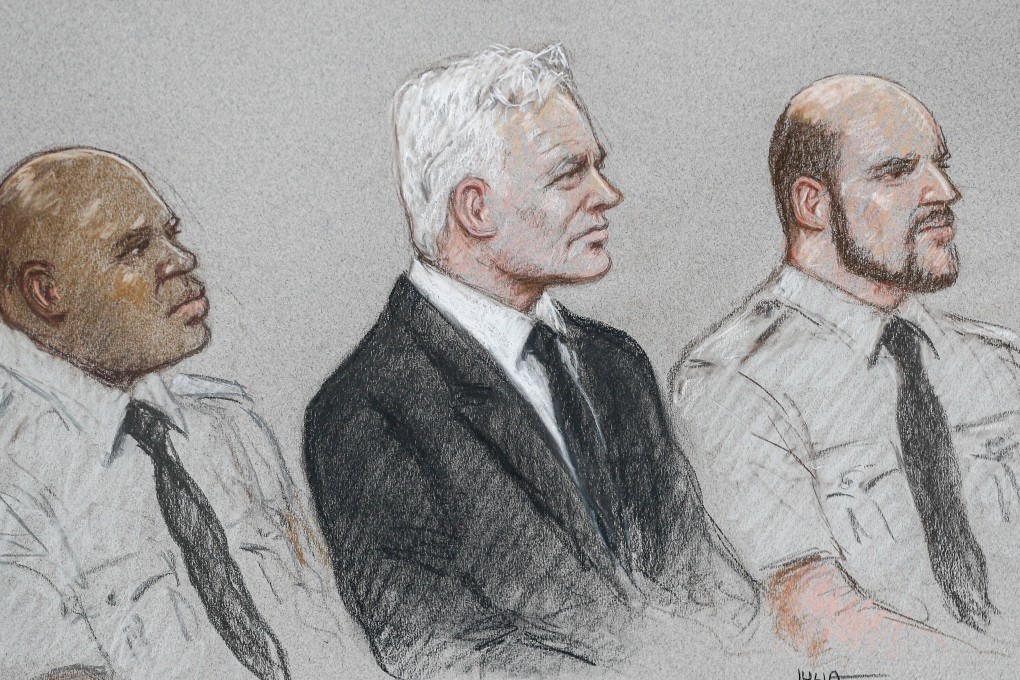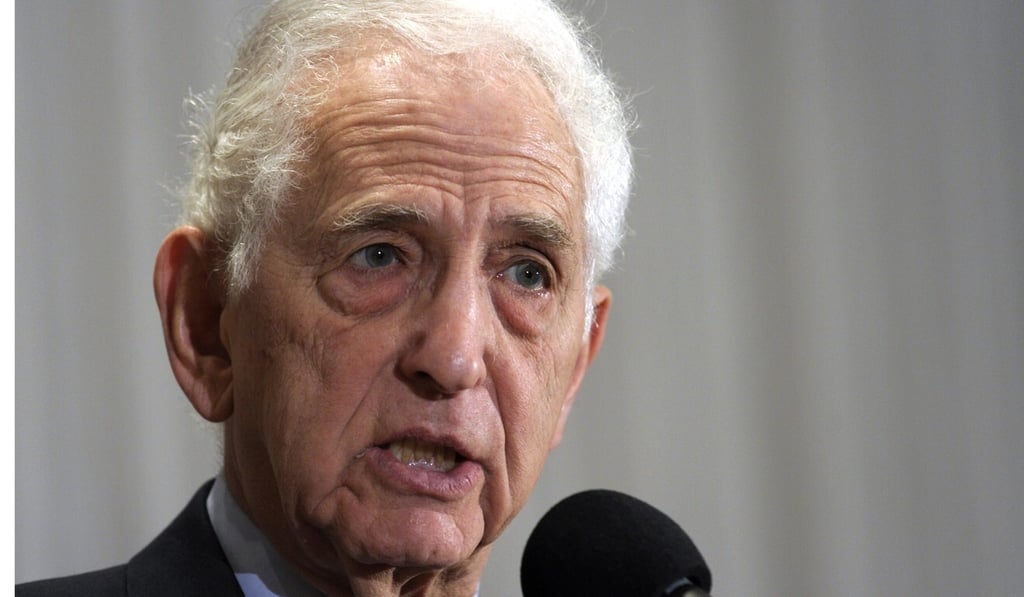‘Pentagon Papers’ leaker comes to defence of WikiLeaks founder Julian Assange
- Julian Assange is fighting to stop being sent to the United States
- WikiLeaks founder wanted on charges that he endangered national security

Daniel Ellsberg, one of the most famous whistle-blowers in living memory, came to the defence of WikiLeaks founder Julian Assange on Wednesday in his legal fight to avoid extradition to the United States from Britain, arguing that the pair had “very comparable political opinions”.
The 89-year-old, who is widely credited for helping to bring about an end to the Vietnam war through his leaking of the so-called Pentagon Papers in 1971, told London’s Central Criminal Court via a video link that there were echoes of his experience in the way Assange was being treated by the US government.
He told the court that he concluded after his several meetings with Assange over the past decade that they shared the same aspirations, to shine a light on the “great lack of transparency” in decision-making circles in the US, especially when it comes to matters of war.
The cables relating to the wars in Afghanistan and Iraq that WikiLeaks published had shown, he said, that torture had become “normalised.”
“The American public needed urgently to know what was being done routinely in their name, and there was no other way for them to learn it than by unauthorised disclosure,” he said in his written testimony.

“I observe the closest of similarities to the position I faced, where the exposure of illegality and criminal acts institutionally and by individuals was intended to be crushed by the administration carrying out those illegalities,” he added.
US prosecutors have indicted the 49-year-old Assange on 17 espionage charges, and one of computer misuse, over WikiLeaks’ publication of secret US military documents a decade ago, largely around the wars in Afghanistan and Iraq a decade ago. The dump, similarly coordinated at various stages with some of the world’s leading newspapers, was arguably the biggest single leak since the Pentagon Papers four decades before. The charges carry a maximum sentence of 175 years in prison.